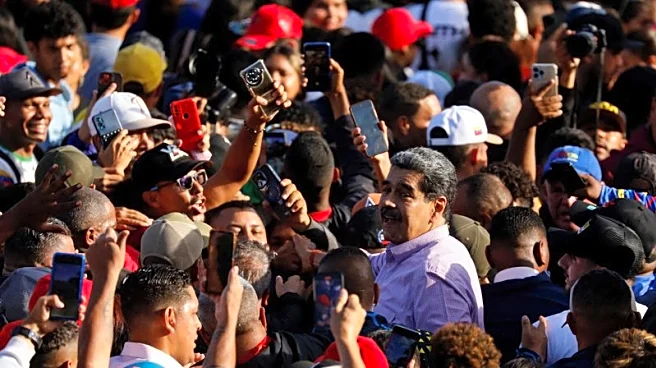Rapid Read • 8 min read
Harvard astrophysicist Avi Loeb, along with a team of researchers, has suggested that the interstellar object 3I/ATLAS, initially identified as a comet, might be an alien spacecraft. This theory challenges the widely accepted view that 3I/ATLAS is a natural icy comet. The object, which originated outside Earth's solar system, is traveling at a speed of 37 miles per second and will pass within 130 million miles of Earth on October 30. Loeb's hypothesis is part of a broader effort to encourage open-mindedness about extraterrestrial possibilities, although it has not been peer-reviewed and is considered more of a speculative exercise. The Galileo Project, co-founded by Loeb, is dedicated to the search for extraterrestrial life.
AD
The suggestion that 3I/ATLAS could be alien technology has sparked debate within the scientific community, highlighting the tension between traditional astrophysical interpretations and more speculative theories. If proven true, the presence of alien technology would have profound implications for our understanding of the universe and the potential existence of intelligent life beyond Earth. However, many experts remain skeptical, emphasizing the importance of rigorous scientific validation. The discourse around Loeb's theory underscores the need for continued exploration and research in astrophysics, potentially influencing future funding and research priorities in the field.
As 3I/ATLAS approaches Earth, further observations and analyses are expected to provide more clarity on its nature. The scientific community will likely continue to scrutinize Loeb's hypothesis, with potential peer-reviewed studies either supporting or refuting the claim. The Galileo Project may also expand its research efforts to investigate other interstellar objects, fostering collaboration among astrophysicists interested in extraterrestrial phenomena. Public interest in the possibility of alien technology could drive increased engagement with space exploration initiatives.
Loeb's theory raises ethical and philosophical questions about humanity's readiness to encounter extraterrestrial life. It challenges cultural perceptions of our place in the universe and the potential risks associated with discovering intelligent civilizations. The debate also highlights the role of scientific inquiry in pushing the boundaries of known knowledge, encouraging a balance between skepticism and curiosity.
AD
More Stories You Might Enjoy











